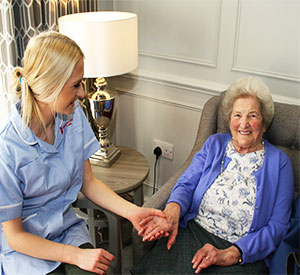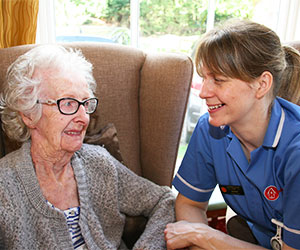Safeguarding Adults Week is from 16th to 22nd November 2020 and is designed to highlight the many areas of safeguarding adults. Safeguarding Adults Week is supported by the Ann Craft Trust, a national charity established to minimise the risk of abuse of disabled children and adults at risk, through training, practice reviews and contributing to research. Safeguarding encompasses a wide range of issues from wellbeing and mental health to grooming adults and organisational abuse. As a leading care provider, Country Court is taking this opportunity to highlight our commitment to safeguarding the people we care for.
All Care Home providers must ensure that people live free from harm, abuse and neglect and in doing so, protect their health, wellbeing and human rights. Safeguarding for older adults focuses on independence and choice and is one of the areas regulated by the Care Quality Commission.
There are also many pieces of legislation and Government initiatives that regulate care homes concerning safeguarding, these include The Care Act 2014, Equality Act 2010, Safeguarding Vulnerable Groups Act 2006 and Care Quality Commission Regulations 2009 as well as many other pieces of legislation.

To guide us and our practices in our care homes we have several policies and processes in place to ensure that people are safeguarded whilst in our care. We also have a range of training to ensure our staff understand their responsibility concerning safeguarding adults at risk and the identification and reporting of harm.
Country Court uses the ‘Making Safeguarding Personal’ approach which aims to support and empower people to make choices, have control over how they want to live their lives and to prevent abuse and neglect happening in the future.
There are six principles set out in the Care Act 2014 which guide practice at Country Court:

When staff are recruited there are policies in place to make sure that people are fit to work with adults at risk and are compliant with national safe recruitment and employment practices, including the requirements of the Disclosure and Barring Service.
All our care homes have a Safeguarding Champion who is responsible for sharing safeguarding best practice and updates with the staff in their home. They will often work with agencies outside their care home to promote best practice and ensure staff know how to report any incidents.
Our blog gives you a brief overview of our approach to Safeguarding at Country Court, if you have any questions please contact your Care Home Manager.